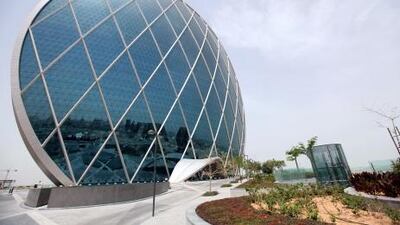Aldar Properties, Abu Dhabi's largest property developer, posted its second straight profitable quarter today as it continued to refocus on its core property business.
The developer of Ferrari World, Yas Island and Abu Dhabi's Central Market reported a net profit of Dh127.3 million ($34.6m) in the second quarter compared to a loss Dh475.3 million in the same period a year ago. The company showed a profit of Dh316.4 million in the first half after reporting a loss of Dh789.5 million last year.
Completion of homes in the Al Gurm, Al Bandar and Al Raha Gardens developments helped spur a more than three-fold increase in revenue in the first half to Dh1.56 billion, up from Dh427 million in the first half of last year.
"The first half of 2011 has seen a continued focus on our core business, the prioritisation of current projects and cash flow management," Aldar Properties chairman Ali Eid AlMheiri said in a statement.
Sales of homes and land accounted for Dh821 million in revenue in the first half, while recurring revenue from investments and on-going businesses more than doubled to Dh728.3 million, up from Dh354.6 million in 2010.

